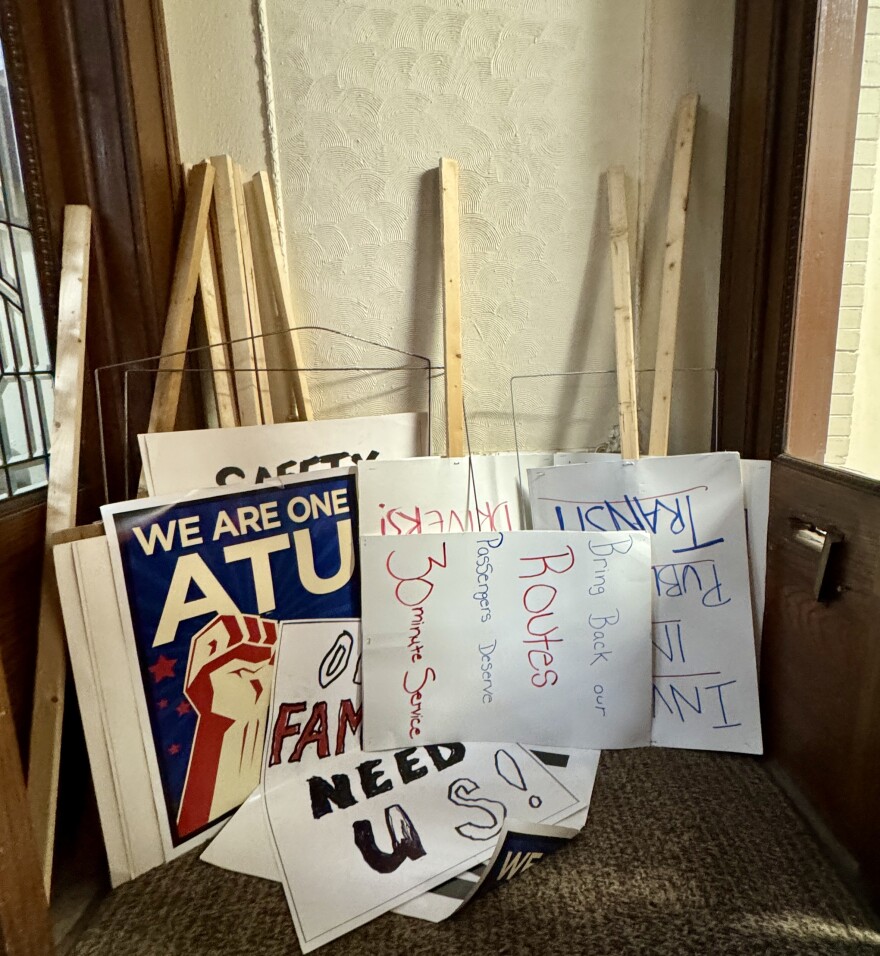Bruce Freeman is a bus driver at heart. For 20 years, he drove the bus all around Milwaukee and Milwaukee County for the Milwaukee County Transit System.
“Driving the bus … it was exciting,” Freeman says. “It was a position that people desired. [There] was a waiting list to get in for driving the buses.”
Freeman, who is now the drivers’ union president, started driving in the mid-’90s. He says being a driver then to now is unrecognizable. Today, the company, its operators and the county are facing serious issues on a number of fronts with no clear answers.

“In June, MCTS announced in the press that they were facing a $10.9 million budget deficit,” says Graham Kilmer, a reporter at Urban Milwaukee who’s been covering the county and MCTS for years. “And then on top of that, [MCTS] is in the middle of contract negotiations for a new three-year contract with the transit union.”
The deficit has been a longstanding concern for MCTS and the county, but federal stimulus funding from the American Rescue Plan Act, or ARPA, stabilized operations during COVID. The county projected that MCTS wouldn’t be affected until the 2028 budget cycle.
The county board and union said they felt blindsided by the deficit announcement. In a board meeting, County Supervisor Priscilla Coggs-Jones highlighted how county departments are told to report budget shortfalls of anything over $100,000 to the board.
“Why did MCTS miss the obligation … who dropped the ball?” she asked.
Kilmer says there are a number of reasons that MCTS points to for the shortfall, including excessive overtime, a contract with a paratransit provider that went way over budget, an increase in prices for parts and commodities, and fare evasion from riders.
“Those all kind of explain the numbers [and] the math that add up to the budget deficit,” Kilmer says. “But what we haven't heard yet is how they managed to get six months into the year and not catch it, or why they didn't report it earlier.”
The Amalgamated Transit Union, which represents MCTS workers, recently voted to authorize a strike. This vote doesn’t necessarily mean a work stoppage will happen, but that the option for workers is on the table.
This is the third straight contract negotiation that the union has voted and passed strike authority since they went on strike in 2015. Kilmer says this highlights a “very serious breakdown in trust between the rank and file workers of MCTS operators, bus mechanics and the people managing the system in the administration.”

While MCTS didn’t talk with WUWM for this story, they provided a statement. In part, a spokesperson from the company said, “We support our bus operators, mechanics … and the great work they do every day … As such, we will continue to engage in negotiations with the union to reach a contract that is fair to our vital frontline employees, as well as Milwaukee County taxpayers.”
“This is just not a fight for money,” ATU President Bruce Freeman says. “We're fighting for security. We're fighting for safe rides on the bus. We're fighting for the company to come up with a reasonable antidote for this fare evasion problem that we got here.”
MCTS estimates that fare evasion is costing the county $4 million. Freeman thinks that could be an undercounting. He says that ever since the COVID-19 pandemic and the county offering free rides for passengers, a lot of people take advantage of the system.
Freeman says that MCTS has already begun making service cuts. And Kilmer says those cuts will continue.
Complicating the matter is the leadership vacuum at MCTS, which hasn’t had a permanent leader since October 2024, when Denise Wandke stepped down. The interim managing director, Julie Esch, took her place but quickly resigned earlier this month after the $10.9 million budget deficit was announced. Currently, Sandra Kellner, a longtime MCTS employee, is in charge.
“The system faces a number of very serious questions about its operations and its service, and we don't really have the answers to those questions yet,” says Graham Kilmer. “I imagine 2026 is going to be a very difficult budget for the transit system.”
Some good news for MCTS came through a federal grant yesterday, as the popular Purple Line, which runs down 27th Street, received a $21 million upgrade. The grant will help reduce travel times and build new bus infrastructure along the route, including traffic calming measures.






